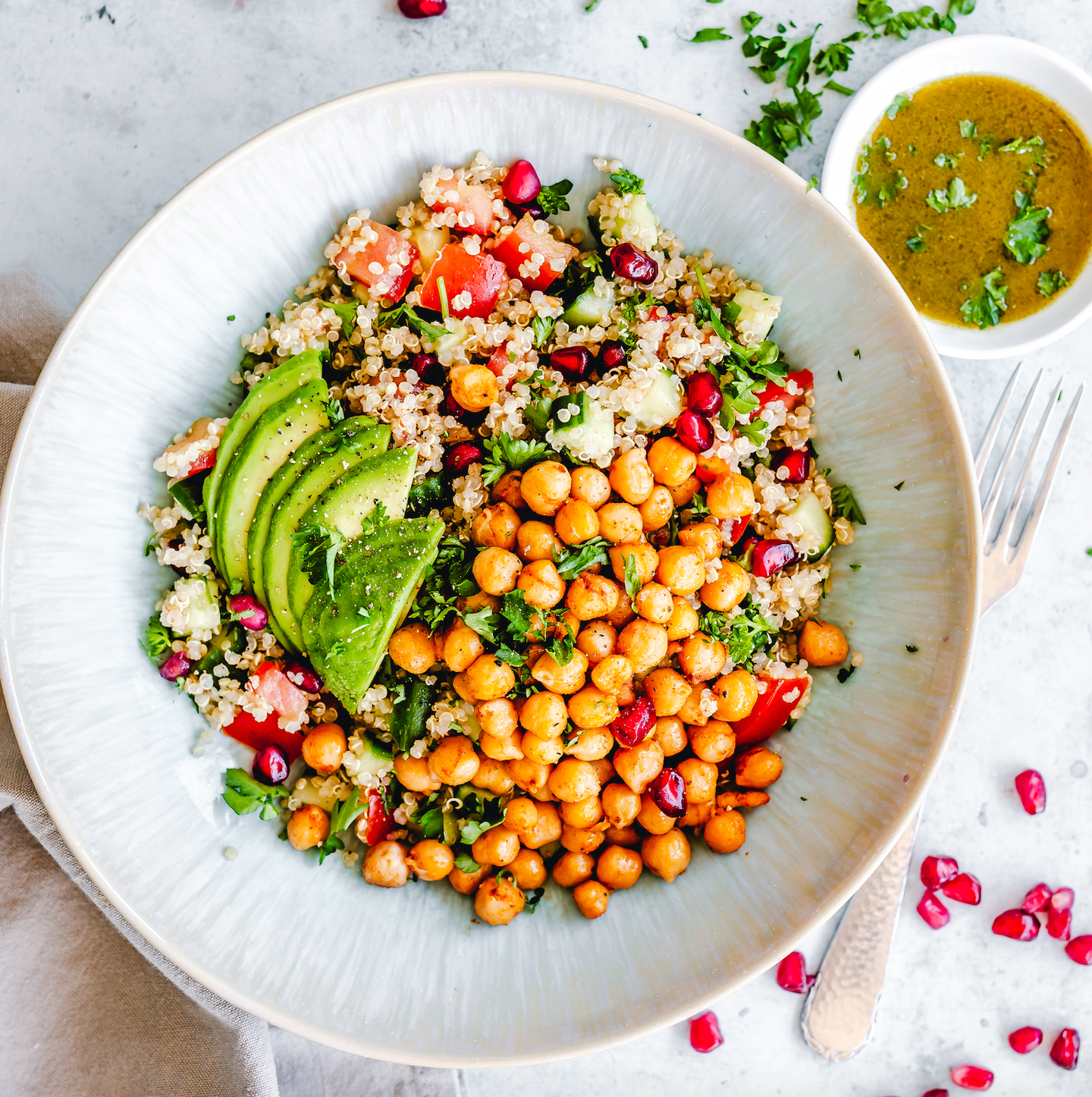
5 Tips to Help Transition Your Family to a Mostly Plant-Based Lifestyle, Even the Picky Eaters
October is National Eat Better, Eat Together Month, dedicated to celebrating family meals in the home. Here, at The Beet, we’re not only amplifying the benefits of eating together, but also encouraging families to start adding more plants to every meal.
We have outlined the key essentials in The Beginner’s Guide to Going Plant-Based, a great place to start while sparking a transition to eating more whole foods. However, transitioning your family to a plant-based lifestyle may not be easy, especially if you have picky eaters. It is crucial to be patient and not give up throughout this process. Here are some tips to move the entire crew to eat more fruits and veggies together:
1. Begin the transition with small steps
It may not be best to speed into it all at once. If you try to switch over in one meal, you'll end up with a rebellion. Instead of trying to get them all on board over one single meal, try dedicating one day a week, like Meatless Monday, and then add on Taco Tuesdays but with meatless meat options for the fixings. Other gradual changes could be adding fruit and veggies to your kid's lunchbox or ordering takeout from a vegan restaurant or choosing the vegan option when ordering in. Setbacks happen, so don’t give up! These small tweaks to your family’s diet may lead to them to embrace a mostly plant-based diet if you don't make mealtime a battleground.
2. Start with familiar foods they already love
Recreate the usual fast food the love, like pizza or chicken nuggets, using whole plant-based foods. If your kids love burgers, start by making a homemade veggie or meatless or black bean patties with their favorite toppings (add enough catchup and they won't notice). Stick with meals that your family already loves, but make them plant-based by removing the meat and dairy. Try cooking up regular spaghetti with garlic bread, using olive oil instead of butter and vegan cheese instead of dairy parm. Then add in favorite treats and serve them up with oat milk instead of dairy. Mix up some sweet potato brownies that are gluten-free and delicious. Your kids will think all brownies are made with vegetables. Don't make a big deal about the fact that they don't contain butter. No one will be the wiser.
3. Get creative in the kitchen, and let each kid cook up one side dish
Get your family members involved in the kitchen, especially in planning and creating one dish to add to the dinnertime meal. Give them the freedom to choose from all the healthy vegetables and ingredients you have on hand since it reinforces the importance of eating fresh food and knowing what goes into your body. Not only will your family members be conscious of what’s going into the food, but every kid gets excited to eat their own creations, and see your reaction to their special contribution.
4. Shop at the market together, but stay out of the junk food aisles
One of the best ways to introduce your family members to whole foods is through shopping together but make the challenge that you are not putting anything in your cart that has sugar in the top two or three ingredients on the label. Better yet tell them you want to buy things they could grow, like vegetables and fruits or nuts and legumes that don't need a label to know what is inside. Your family members will start to have fun picking out their favorite fruits and vegetables and seeing what is in seasons. Challenge them to find something new like butternut squash or artichoke to make mealtime more interesting. Eating a variety of foods is healthier, so get them excited about new options other than potatoes or string beans, such as cruciferous vegetables, tropical fruits, whole grains, and legumes. It is also a great opportunity to try new foods and the latest plant-based meats on the market.
5. Connect with other plant-based families and make it fun
Your family members may be inclined to get into it if they see their friends enjoying plant-based meals as well. Connect with like-minded families who are plant-based through school, potlucks, picnics, sports (when they are back on the schedule), and other appropriately socially-distanced gatherings. Join a Facebook group created for and by plant-based parents in your community. Join a farm coop or see if your local vegan grocery store is holding cooking classes (even online) or other events for kids. Not only will it be a way to meet new people, but get great ideas from other parents trying to keep their kids healthy while enjoying a mostly plant-based lifestyle.
More From The Beet






